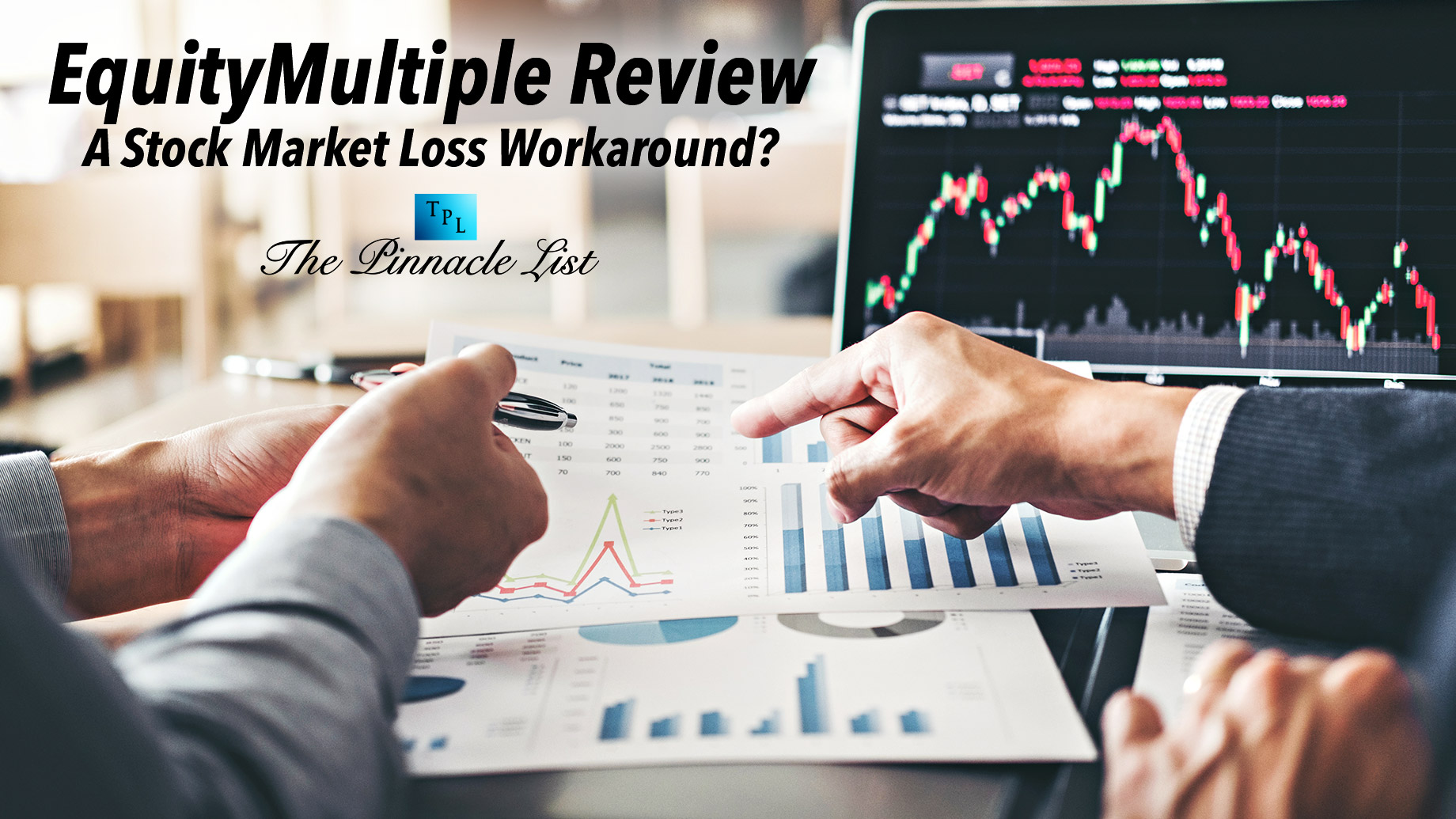
EquityMultiple was founded in 2015, and is a crowdfunding investment platform for entry into the commercial real estate market. This EquityMultiple review reveals success, but is only an investment choice for accredited investors, which limits its broad availability. If individuals are interested in either becoming accredited or knowing more about crowdfunded commercial real estate, continue to read this EquityMultiple review.
Snapshot EquityMultiple Review
- 18.7 historical net rate of return
- Chatbox pop up for questions
- Historically less volatile than stocks and REITs
- The average investment is $20,000 on a property
Benefits
Intuitive Platform
EquityMultiple unlocks investment deal details with account creation for curious investors. Casual browsers can still see a few key facts, but it is only the property name, location, type, minimum investment, hold period, and expected rate of return.
Photos and overviews list property types that EquityMultiple invests in. They include multi-family, office space, and industrial, retail, and apartments.
Crowdfunded Real Estate
Crowdfunded real estate investment is an industry less than ten years old. The long-term stability of this platform has yet to be tested. However, other companies like Crowdstreet and First National Realty Partners, validate the interest, time and capital available for longer-term real estate investment.
Getting Started
>>> First, click HERE to go to the website
No initial deposit is required to start an account. EquityMultiple investments begin at $5,000. More typically, if the investment is through a self-directed IRA or EquityMultiple’s platform, the minimum is $10,000.
With each investment, EquityMultiple provides transparent documentation. The fees range between .5 and 1.5 percent. Other fees may apply.
Risks
Private investments are not guaranteed. All returns are projections, and investments may lose value. It is very important to know what, where, and how money is going to be tied up in private investments.
This is probably not a wise investment choice for:
- Investors who cannot afford to lose the capital
- Those who may need the money sooner than the term
- Those who are not comfortable with risk
- Those who do not have a larger, more diverse portfolio
As with any private investment, it is always prudent to seek guidance from a personal financial advisor. The advisor will balance the risk and reward, portfolio composition, and market conditions, and make a recommendation.
Balancing professional input, outside reviews of EquityMultiple, personal experience with EquityMultiple, and one’s own investment preference, is a complex and thorough process. But after all the research is done, investors can have the confidence needed to weather any ups or downs the investment will return.
Real Estate Diversification
Real estate provides balance to a contracting stock market and economy. It is recommended real estate accounts for five to 10 percent of a portfolio. For example, if an investor puts in $10,000, and that is 5 percent of the portfolio, the total net worth of investments in a variety of funds should run around $200,000.
Income Opportunity
According to its website, EquityMultiple has returned $39.2 million to investors. It offers investment in equity, preferred equity, and senior debt.
Returns are typically distributed quarterly, but schedules vary by project. Investors are encouraged to spend time knowing the return schedule for each property.
EquityMultiple Investment Choices
Fund
Fund investments are professionally managed. They include multiple properties varying in type to minimize risk and build diversification. The investment terms are broad, ranging from 1.5 to more than ten years.
Direct
These commercial properties are chosen by the investor.
Savings Alternative
Note-based investments with shorter terms targeted between three and nine months. Zero fees and a minimum investment of only $5,000.
Senior Debt
This product has a targeted rate of return between 7 and 13 percent. Its hold period is between 9 and 24 months. It has a flat rate of return.
Preferred Equity
Preferred equity has a targeted rate of return between 7 and 12 percent. Preferred return rates are between 11 and 17 percent. The hold period is 12 to 26 months.
Common Equity
Common equity has a targeted rate of return between 6 and 12 percent in the near-term. Hold periods are three to seven years.
Funds and opportunity zones are also offered and are considered illiquid, meaning they cannot be traded or transferred, for at least ten years. Opportunity zones are economically disadvantaged areas the government wants to develop, and has provided tax incentives to boost expansion
1031 Exchanges
1031 exchanges are tax-free property swaps. Essentially the capital gains tax can be deferred. Companies or investors can sell a property, buy a new one used for the same purpose, putting the proceeds from one sale into an account until used, then use it for the new property. There is no limit to the number of times 1031s can be used. Proceeds can continue to grow long-term, and are only taxed when the cash is pulled out.
Mezzanine Debt
Mezzanine debt is the combination of debt and equity that allows the lender to convert it into equity in case of default.
Terms of investments
EquityMultipe investments are illiquid until the expiration of the loan. This time period ranges from 9 months to more than ten years. There are exceptions, but this is rare. No sale or offer of a property takes place without investor notification with all the supporting documentation.
Reviews
Independent EquityMultiple reviews include top ratings for the type of investments available, ease of use on the website, investment transparency, and customer support.
The crowdfunded investment platform EquityMultiple is a well-developed investment and asset management company. Professional managers dive deep into a variety of commercial real estate properties to get maximum returns. It is for nontraditional, slightly more hands-on investors, who want quarterly returns outside the stock market. As a passive income choice, EquityMultiple stacks up well against competitors in a marketplace full of investors trying to find a way out of stock market losses.